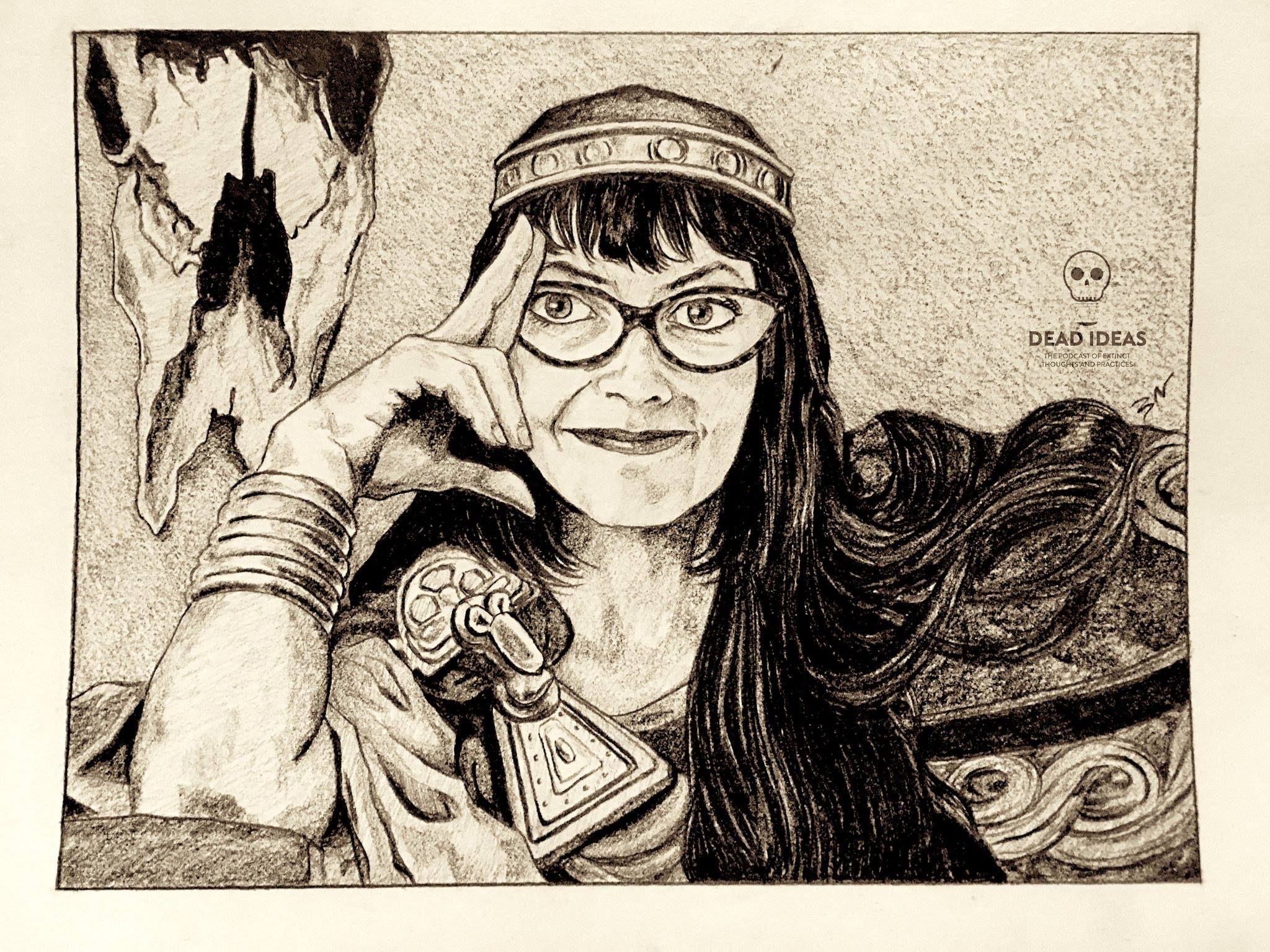
Online class which covers why curses have been the an integral part of Irish magic for thousands of years. They’ve been used to punish those who have wronged the curser in a myriad of ways. Cursing is a just act of righteous magic – used to right wrongs with Dr. Gillian Kenny Research Associate at Trinity College Dublin.
Throughout Irish history into the modern era not only magic users but
ordinary people employed the art of cursing. They visited curse stones
or smithies (powerful magical places) to carry out their acts. Cursing
was often the recourse of the most powerless – the only way of getting
even with others. Issuing a curse against your enemies was cathartic, an
expression of power by those who often didn’t have any. It is a
psychologically powerful form of magic which empowers. It was used
throughout the modern period and only seems to have died out fairly
recently in the twentieth century. Or has it?
In April 2018 in the presence of the archbishop of Dublin, the
metal-encased heart of St Laurence O’Toole was returned to Christ Church
Cathedral. The return followed a six-year investigation into the
heart’s theft in 2012 and was made possible by a tip-off that located
the 800-year-old relic in the Phoenix Park in Dublin. Intriguingly,
several media outlets, including the Irish Examiner, reported that the
thieves ‘returned it because they thought it was cursed’ and feared that
it ‘was responsible for the deaths of loved ones from apparent heart
attacks’.
Cursing, it seems, still makes its presence felt in Ireland.
By the end of the class students will gain an insight into exactly what cursing means in the Irish tradition. They will also understand the attraction for many powerless people throughout thousands of years of using extraordinary, superntaural means to engage with enemies. The class will trace the evolution of cursing and the places and rituals associated with the practice.
Student will be familiar with the intent behind cursing, the language used in them and the rituals associated with them and how they changed. Cursing has been recorded at all times during Irish history – from druids, chanting against their enemies to St Patrick seeking to smite the opponents of Christ. On to those who cursed Cromwell and Ireland's English overlords as well as cruel landlords in the eighteenth and nineteenth centuries. Here, cursing becomes a political act. A curse could take a man’s life and those of his family. They could be generational and affect his lands and animals. Poets could curse those who had offended them by composing a special satire which had real-world affects – they could maim or kill.
In Irish history cursing was regarded as a legitimate activity, a form of supernatural justice that only afflicted guilty parties. Cursing affected not only people but the landscape around Ireland – folklore tells of ancient cursing causing lakes, mountains and rivers. It is a long tale which has repercussions even in the twenty-first century.
- The Irish inheritance of cursing – its origins
- The adoption of cursing by the new Christian elite
- Cursing as a valid way to express anger and powerlessness through Irish history
- The technical aspects of cursing – ritual and tools eg cursing stones and smithies
- Curses vs dark magic and piseogs - ‘Curses, like chickens, come home to roost’
- Attempts to outlaw cursing
- Cursing as a desperate tool in desperate times – curses thanks to Cromwell, the Famine and dispossession. For example - ‘God’s curse on you England, you cruel-hearted monsters’.
- Cursing today – how do people understand them. Are they used?
This Teaching is suitable for beginners, as well as
those with more experience in this area, or in other traditions. You do
not have to be dedicated to or working with any Irish Gods, Guides, or
Guardians to take this class.
WHAT DO YOU GET WHEN YOU ENROLL THIS COURSE?
Your Course access enrollment below includes access to:
- -- Presentation & Resource Slides
- -- Class Video
- -- Class Audio
- -- Q&A Session (recorded during live class)
You will get the unique perspective of an Hon Research Associate at the Centre for Gender and Women’s Studies in Trinity College Dublin, who specialises in research and teaching on women’s lives in medieval and early modern Ireland and beyond.
This is a completely self-paced online course.
When you are enrolled, you get the recorded files for repeated or further study and reference. You decide when you start and when you finish.
When you enroll in this class, you are receiving lifetime access (with a full 30 day money back guarantee).
Just click the big orange buttons on this page to enroll now!
Your Instructor

Dr. Gillian Kenny is an Hon Research Associate at the Centre for Gender and Women’s Studies in Trinity College Dublin. Her specialism is women’s lives in medieval and early modern Ireland and beyond. She is also interested in the lives of those considered outsiders in the medieval world and is currently researching that topic. She has taught in both UCD and TCD and has appeared in and written on various historical topics both on TV and in newspapers/magazines as well as working on her own books and papers.

Once again thank you so much for the free content. The meditations are second to none. The IPS is a great help in my quest to reconnect with my culture, traditions, language and land that I emigrated from at 8yrs old.
Joyce Rigley - FREE - 3 Truths About Ogham
Frequently Asked Questions

Loved receiving this class from Jon! His approachable manner makes the lecture portion easy to take in and understand, and the content, including the resources he points learners to, will keep on giving. I'm queer and transmasculine, and so it's really important for me to learn about deities in the Irish tradition who present us with alternative models of masculinity. Thank you Jon and the IPS for bringing us this class!
- The Dagda - Hearth Hero & Domestic Deity
How to Get Access...
- Choose the payment option below that best suits you - pay in Euros with a Credit Card, or pay in US Dollars with a Credit Card or PayPal.
- Click your preferred option so it's highlighted in orange.
- Click the big orange 'Enroll Now' button.
- On the Order Summary page, click to 'Add Coupon' if you have one! (Type in the coupon code, for example, from our Patreon Here)
- Enter your Account and Payment information.
- Tick the box to agree to the standard Terms and Conditions.
- Click the orange button at the bottom of that page to enroll at the price that is displayed.
Don't forget you have a full, no quibble, 30 day money back guarantee!
